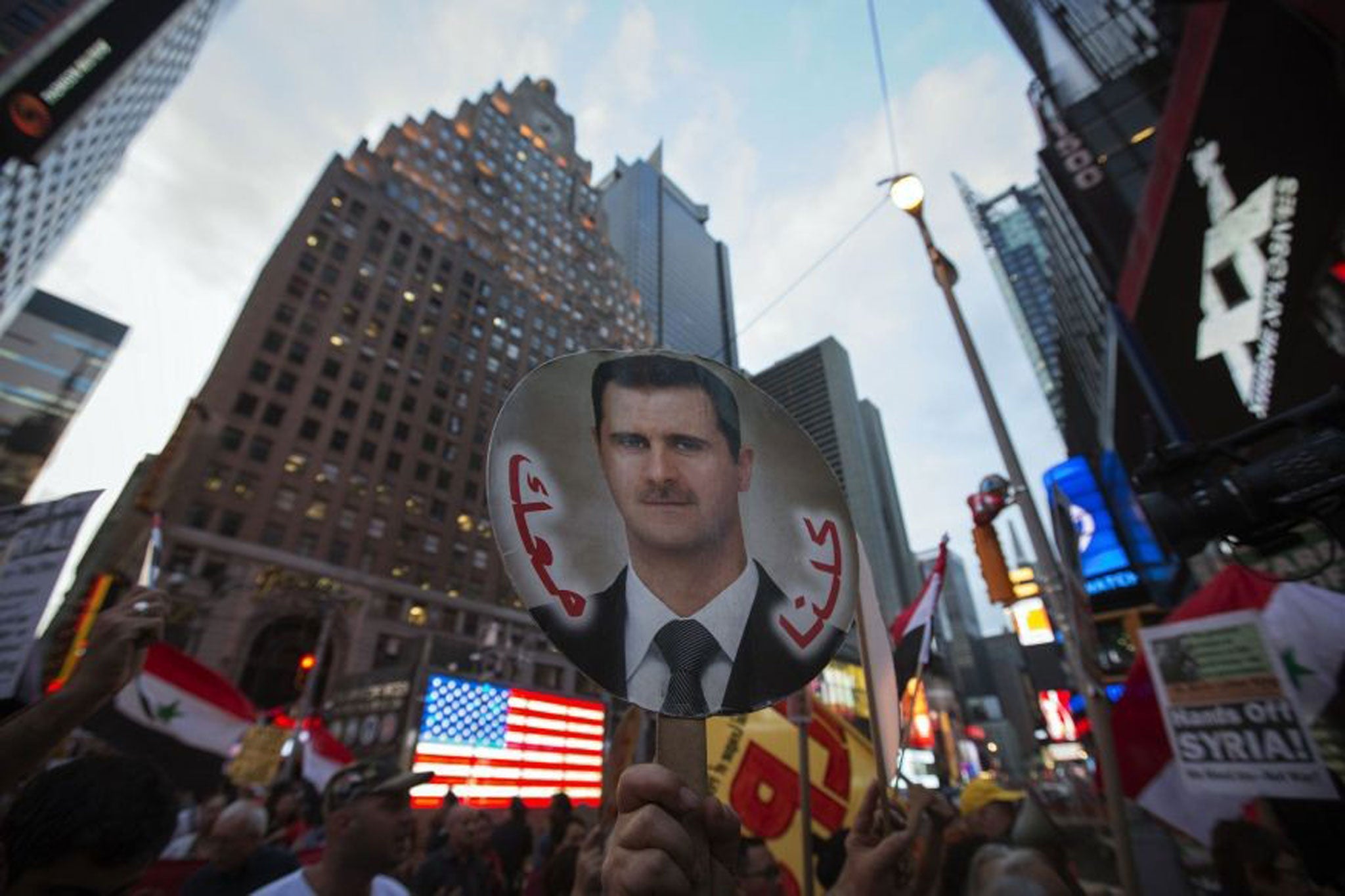Investors facing hit from Syrian crisis
Should you start a flight to safety for your savings, or wait to see if the conflict worsens?

Your support helps us to tell the story
From reproductive rights to climate change to Big Tech, The Independent is on the ground when the story is developing. Whether it's investigating the financials of Elon Musk's pro-Trump PAC or producing our latest documentary, 'The A Word', which shines a light on the American women fighting for reproductive rights, we know how important it is to parse out the facts from the messaging.
At such a critical moment in US history, we need reporters on the ground. Your donation allows us to keep sending journalists to speak to both sides of the story.
The Independent is trusted by Americans across the entire political spectrum. And unlike many other quality news outlets, we choose not to lock Americans out of our reporting and analysis with paywalls. We believe quality journalism should be available to everyone, paid for by those who can afford it.
Your support makes all the difference.Concerns about the conflict in Syria have already led to a degree of investor flight to safety this week. European stocks fell to their lowest levels in six weeks while gold climbed again and bond yields fell as buyers seeking safety piled in.
Experts across the world have already been hinting that there could be financial worries ahead because of growing concerns over emerging markets. India's stock market, for instance, has fallen 17 per cent in August, and Indonesia has dropped 19.6 per cent. The Indian rupee, meanwhile, has crashed more than 22 per cent in value this month.
With the crisis in Syria worsening daily, the ramifications could hit trade across the world, experts warn. "Concerns about the conflict in Syria have escalated and intervention now seems likely and the oil price has jumped," said Keith Wade, chief economist at Schroders. "The question is whether this will derail the global recovery?"
He recalls that in the run-up to the first Gulf war more than 20 years ago, US growth stalled as oil prices spiked and uncertainty caused companies and households to delay their investment plans.
"At the risk of sounding complacent, this time should be different," he predicts. "The first and second Gulf wars were on a much larger scale than the Syrian conflict, with the clear intention of sending in troops. This time, intervention is likely to be limited to the firing of cruise missiles."
However the economic impact may depend on how Syria's allies in Russia and Iran react, he warned. "Should they choose to escalate tensions then there might be a greater pull back in spending as uncertainty rises."
Nick Hungerford, chief executive of online investment manager Nutmeg, said the biggest impact could be on the US, where the consumer-led recovery already looks to be on shaky ground.
"Don't forget that the US is already close to hitting her debt ceiling," he pointed out. "If government domestic financial support dries up as another costly military campaign begins and fuel costs rise, hampering spending on other goods and services, we could see a scared consumer fastening their belt.
"And that, a fall in US consumer demand, could have a considerable knock-on effect around the world."
There's also the already volatile nature of the area to consider, said Gary Dugan, chief investment officer at Coutts. "Geopolitical risks in the Middle East continue to mount, particularly in Egypt," he said.
Brian Dennehy of FundExpert.com is more sanguine about the crisis. "My view is don't worry about the Syria crisis, it will come and go, just as with prior conflicts, and much bigger ones," he said. In fact, with oil prices on the rise, the conflict could end up offering an opportunity for brave investors, he suggested. "Those investors of an opportunistic nature could consider an energy fund, where oil prices look cheap in any event."
However many fund managers contacted by The Independent declined to comment either way. Their reasons? With the crisis still in a very precarious position, it's clearly very difficult to predict with any real accuracy how things will pan out.
Making investment decisions against a background of such deep uncertainty could certainly be an unwise move. For that reason, a sensible move for many investors may be to simply wait and see what develops.
Join our commenting forum
Join thought-provoking conversations, follow other Independent readers and see their replies
Comments